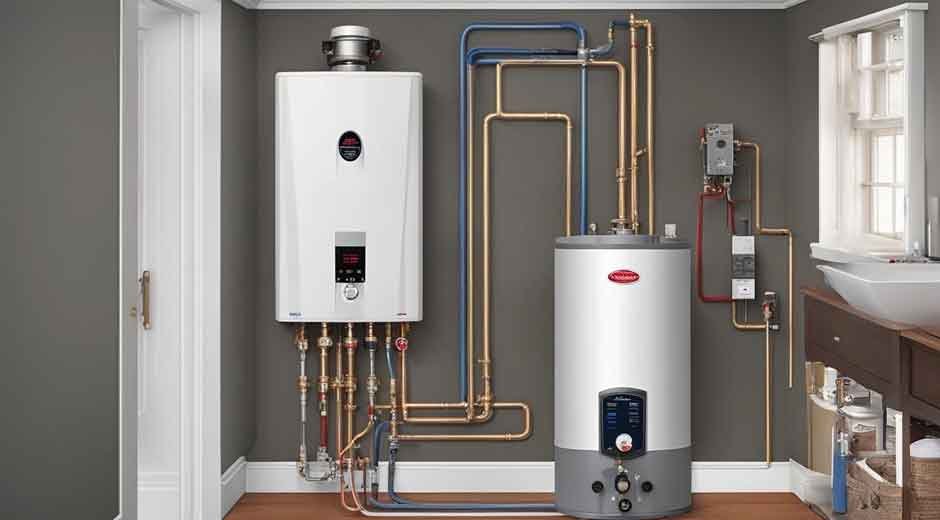Installing a tankless water heater offers multiple functional and structural advantages for residential use. These systems are built to deliver hot water efficiently, conserve space, and support modern usage needs. Homeowners often prefer designs that align with long-term water and energy goals.
Property assessments for tankless water heater installation often begin with evaluating pipe access, electrical load, and water demand. Searching for a “plumbing contractor near me” helps locate professionals equipped to examine these technical factors and ensure correct unit placement. Proper planning before installation helps avoid system mismatches and ensures reliable long-term performance.
1. Reliable Hot Water Flow
Tankless water heaters activate only when hot water is needed. They provide a continuous stream without waiting periods or storage limits. This supports multiple household tasks without supply interruptions.
The system heats water directly as it passes through the unit. This results in consistent output and avoids fluctuations in temperature. The process ensures efficiency for both small and high-demand usage. This feature is especially helpful during peak usage times. The design supports efficient flow across several fixtures.
2. Compact Unit Design
These systems are known for their compact, wall-mounted designs. They occupy less physical space compared to large equipment that requires floor placement. Utility rooms, closets, and mechanical spaces often accommodate these units without major remodeling.
The design allows for simplified installation and accessibility. This setup also helps streamline routine maintenance and part replacement if needed. Contractors have easier access to internal components for inspection. The layout reduces service time and potential disruption. This convenience is ideal for ongoing system upkeep.
3. Focused Energy Usage
Tankless heaters operate only during active water usage. When a faucet or appliance is off, the system remains idle. This reduces energy expenditure during standby periods and contributes to efficient utility use.
On-Demand Operation
The heating process activates in direct response to water flow. Energy is consumed only when needed, with no energy wasted on maintaining stored water temperature. This method supports household energy management goals and enhances control over monthly consumption.
4. Prolonged Operational Lifespan
Many tankless water heaters are built with serviceable components and robust construction. With regular maintenance, their operational lifespan can extend for several years. This adds predictability to home infrastructure planning.
Routine flushing and filter cleaning are typically sufficient to maintain performance. With no large water reservoir, internal parts are less exposed to prolonged moisture or thermal stress. Units are less vulnerable to rust or calcium deposits. Their structure is built to withstand frequent use. Scheduled service ensures continued high performance.
5. Reduced Leak-Related Risks
Traditional water heating systems can occasionally fail due to tank rupture or seam degradation. Tankless systems eliminate the risk of stored water leakage. This lowers the chances of water damage to nearby flooring or finishes. Surrounding walls and cabinets also remain protected. This prevents future repair expenses caused by flooding.
Minimized Water Exposure
Since water flows only during use, there is less residual moisture inside the unit. This reduces the need for drainage solutions and lowers the likelihood of corrosion-related failures. The structural design adds reliability to interior plumbing systems.
Professional installation ensures system compatibility with flow rate, pressure, and placement requirements. Evaluating system requirements like flow rate, fuel type, and placement can be done by searching for a “plumbing contractor near me”, which helps identify experts familiar with tankless water heater installations. Once installed, the tankless water heater offers consistent performance, structured energy usage, and a reliable solution for continuous hot water access. These systems meet technical needs while promoting sustainable utility use.










